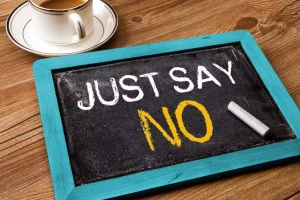The clear path forward based on Dr. Harris’s remarks was for physicians to redouble their efforts to curtail painkiller prescriptions. I answered that this was a logical and true answer, since getting drugs on the street was always more deadly than taking drugs under medical supervision. But I added that this was not a sufficient explanation for drug deaths due to everything from stimulants to the whole array of depressant-analgesic drugs rising in lockstep. Staying busy, reconsidering coping strategies, and focusing on mental health can get you back on track to recovery. Obviously, a relapse is extremely difficult to deal with, but it’s not the end of the world. In fact, people in recovery often encounter old triggers, coping habits, and opportunities to use.

Myth: If a person has a family life and holds a stable job, they cannot have a drug or alcohol addiction.
In the United States, excessive behavior patterns—involving smartphone use, Internet gambling, gaming, pornography, even eating and shopping—are being studied as possible behavioral addiction. While such activities may provide the opportunity for ample immediate reward, it has not yet been determined that they meet all of the criteria for addictive behavior. Substance use is a treatable condition and complete remission is entirely possible. Recovery, however, is often a long-term process that may involve multiple attempts.
Enter your email for access to our FREE weekly sober support group on Zoom.
To debunk this myth, it’s important to highlight that the duration of the recovery process can vary for each individual. Some individuals may achieve significant progress in a relatively short time, while others may require longer periods to fully recover. It is crucial to emphasize that recovery is not solely about achieving sobriety, but also about rebuilding myths about addiction and recovery one’s life and maintaining long-term wellness. It’s important to note that success rates can vary depending on factors such as the severity of the addiction, the individual’s commitment to treatment, and the support system available. However, these statistics demonstrate that treatment can indeed be effective in helping individuals overcome addiction.
- Individuals who have higher tolerances to alcohol, such as people with alcohol addiction, may eliminate alcohol more quickly.
- These alcohol and drug rehab programs should be fluid and constantly updated as the client progresses through the program.
- Recovery, on the other hand, is a lifelong process that involves physical, psychological, and social changes.
Myth #6: Treatment is Not Effective
Still, the media perpetuates the myth that there is a right way and a wrong way to recover, and that treatment that is luxurious or comfortable is inherently bad. If you are not ready to share with your loved ones, every state has a variety of Alcohol Anonymous and Narcotics Anonymous meetings available by region. Many think loved ones will think less of them, it will affect their status at work, or their friends will judge them for their addiction. But this is all minuscule when it comes down to your health and ultimately, the quality of life you are living. It takes a constant effort and unconditional support to stay ahead of the disease. The forefront of addiction and recovery is inundated with outdated and blatantly false information.
Prescription medication, alcohol, and marijuana are often categorized as “safer to use” because of legalization and normalization of use. Hard drugs tend to carry heavier social stigmas, while other substances may get a pass. People who have been using heavily for long periods develop tolerance, meaning that drugs begin to have “diminishing returns.” Over time, they must use more to get the same effects. In some cases, people no longer get high and simply continue using substances to feel “normal” or avoid withdrawals.
- Addiction itself can cause someone to become a person who steals for more money or drugs, isn’t available to friends or family, or makes irresponsible choices that they wouldn’t have made otherwise.
- Marijuana may also be viewed as a non-addictive drug, but it is possible to develop a dependence on this substance.
- Many individuals believe that asking for help is a sign of weakness or failure.
She has written extensively for print and online publications specializing in education and health issues. For the last six years, her writing focus has been on addiction and mental health issues. People do not choose to become addicted any more than they choose to have cancer. Genetics makes up about half the risk of addiction; environmental factors such as family life, upbringing, and peer influences make up the other half. According to the Journal of the American Medical Association, 40% to 60% of those who get substance abuse treatment will relapse within 1 year. Likewise, the musical challenges the common perception that addiction is a moral failing that calls for judgment or punishment.


 Italiano
Italiano


Leave a Reply